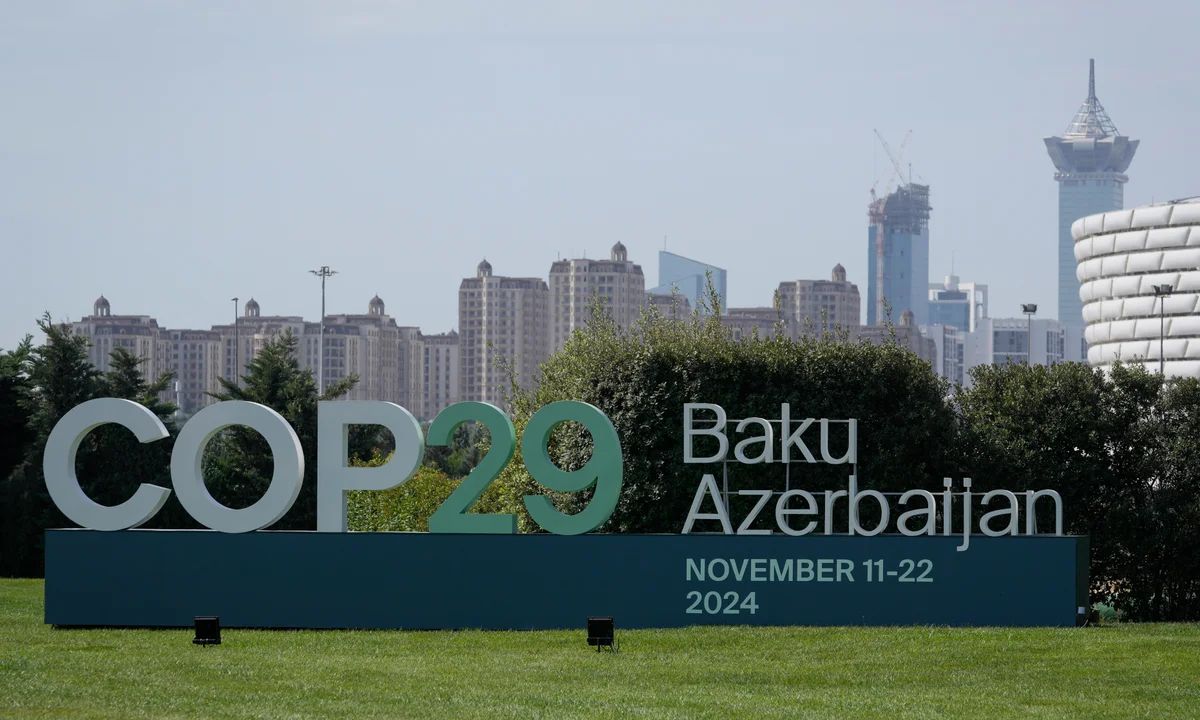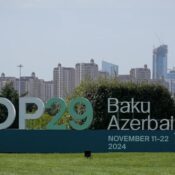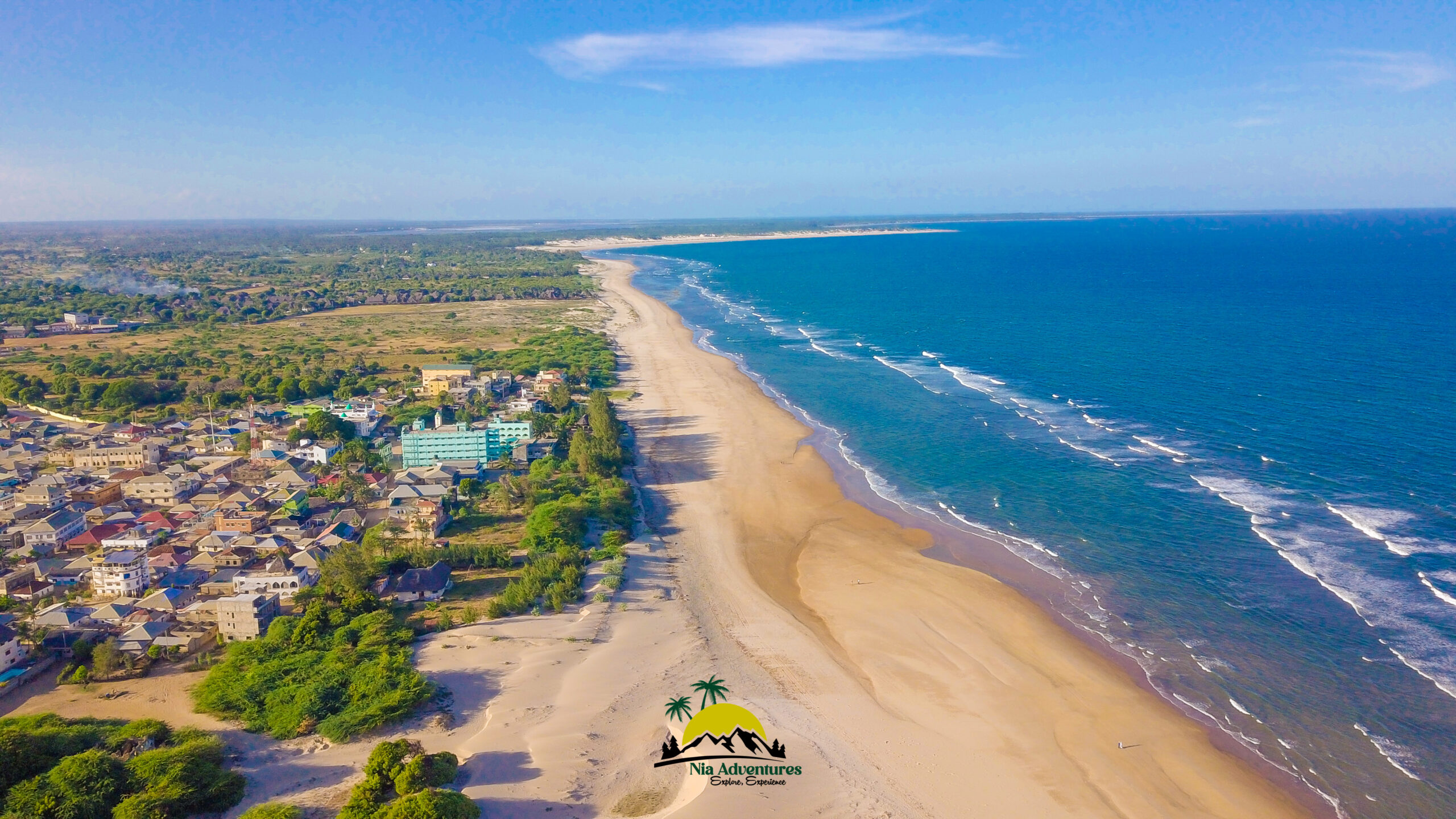𝐊𝐞𝐲 𝐓𝐚𝐤𝐞𝐚𝐰𝐚𝐲𝐬 𝐟𝐫𝐨𝐦 #𝐂𝐎𝐏𝟐𝟗: 𝐂𝐥𝐢𝐦𝐚𝐭𝐞 𝐅𝐢𝐧𝐚𝐧𝐜𝐞 𝐚𝐧𝐝 𝐓𝐨𝐮𝐫𝐢𝐬𝐦 𝐒𝐮𝐬𝐭𝐚𝐢𝐧𝐚𝐛𝐢𝐥𝐢𝐭𝐲 𝐀𝐠𝐞𝐧𝐝𝐚

𝐊𝐞𝐲 𝐓𝐚𝐤𝐞𝐚𝐰𝐚𝐲𝐬 𝐟𝐫𝐨𝐦 #𝐂𝐎𝐏𝟐𝟗: 𝐂𝐥𝐢𝐦𝐚𝐭𝐞 𝐅𝐢𝐧𝐚𝐧𝐜𝐞 𝐚𝐧𝐝 𝐓𝐨𝐮𝐫𝐢𝐬𝐦 𝐒𝐮𝐬𝐭𝐚𝐢𝐧𝐚𝐛𝐢𝐥𝐢𝐭𝐲 𝐀𝐠𝐞𝐧𝐝𝐚
𝐊𝐞𝐲 𝐓𝐚𝐤𝐞𝐚𝐰𝐚𝐲𝐬 𝐟𝐫𝐨𝐦 #𝐂𝐎𝐏𝟐𝟗: 𝐂𝐥𝐢𝐦𝐚𝐭𝐞 𝐅𝐢𝐧𝐚𝐧𝐜𝐞 𝐚𝐧𝐝 𝐓𝐨𝐮𝐫𝐢𝐬𝐦 𝐒𝐮𝐬𝐭𝐚𝐢𝐧𝐚𝐛𝐢𝐥𝐢𝐭𝐲 𝐀𝐠𝐞𝐧𝐝𝐚 #COP29 concluded yesterday, November 23, in #BakuAzerbaijan, after extended discussions on financial support for developing nations to tackle climate change. Wealthy countries agreed to increase their proposed climate finance from $250 to $300 billion annually. This came after strong criticism of an earlier proposal, which many called “a joke.” Despite the increased pledge, concerns were raised about including loans rather than grants, which could risk pushing vulnerable countries further into debt. The deal remains controversial as it falls short of what’s needed to address extreme weather and transition to green economies. 𝗗𝗶𝘀𝗰𝘂𝘀𝘀𝗶𝗼𝗻𝘀 𝗼𝗻 𝗨𝗿𝗯𝗮𝗻𝗶𝘇𝗮𝘁𝗶𝗼𝗻, 𝗧𝗿𝗮𝗻𝘀𝗽𝗼𝗿𝘁, 𝗮𝗻𝗱 𝗧𝗼𝘂𝗿𝗶𝘀𝗺 Among the various agendas, one that showed commitment was the discussions held on November 20 about #urbanization, #transport, and #tourism. The focus was on how #tourism contributes to greenhouse gas emissions and how it can play a key role in #climate #adaptation and #regeneration strategies. Over 700 stakeholders participated in these discussions, including government officials, tourism leaders, and environmental experts. The First Ministerial Meeting on 𝘊𝘭𝘪𝘮𝘢𝘵𝘦 𝘈𝘤𝘵𝘪𝘰𝘯 𝘪𝘯 𝘛𝘰𝘶𝘳𝘪𝘴𝘮, chaired by #Azerbaijan’s State Tourism Agency, emphasized the need for science-based solutions to reduce tourism’s environmental footprint. And with tourism responsible for 𝟖.𝟖% of global emissions, delegates called for #sustainable practices, better measurement tools, and innovative financial strategies. A key outcome was the #COP29 Declaration for 𝘌𝘯𝘩𝘢𝘯𝘤𝘦𝘥 𝘊𝘭𝘪𝘮𝘢𝘵𝘦 𝘈𝘤𝘵𝘪𝘰𝘯 𝘪𝘯 𝘛𝘰𝘶𝘳𝘪𝘴𝘮, signed by 52 governments. The discussions also explored how the tourism sector can adopt better practices in carbon measurement, de-carbonization, and financing. Experts from academia and the private sector addressed how these efforts can promote accountability, innovation, climate adaptation, and regeneration. In addition, the World Travel and Tourism Council (#WTTC) presented the second edition of its “𝗡𝗲𝘁 𝗭𝗲𝗿𝗼 𝗥𝗼𝗮𝗱𝗺𝗮𝗽.” This showed the progress in the sector’s efforts to reduce emissions. The roadmap revealed that 53% of tourism businesses now have climate goals, marking a 42% increase since 2021. The report also highlighted a reduction in carbon intensity, particularly in the aviation, cruise, and hotel industries. Looking ahead, the event laid the groundwork for future coordination in climate-resilient tourism development. A partnership between #UNTourism and the State Tourism Agency of #Azerbaijan aims to create a framework for global cooperation in tourism’s climate transformation. This partnership will continue through to #COP30 in Brazil in 2025.



